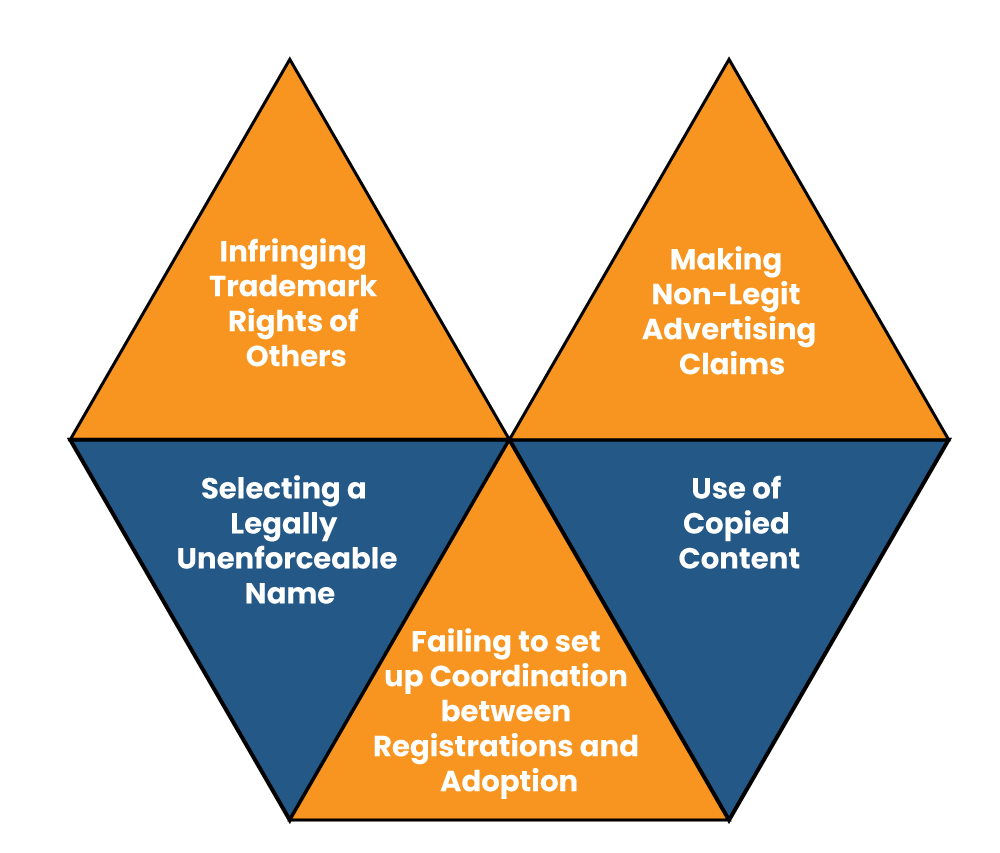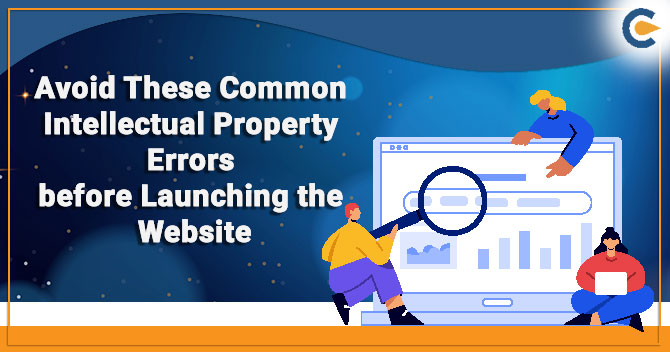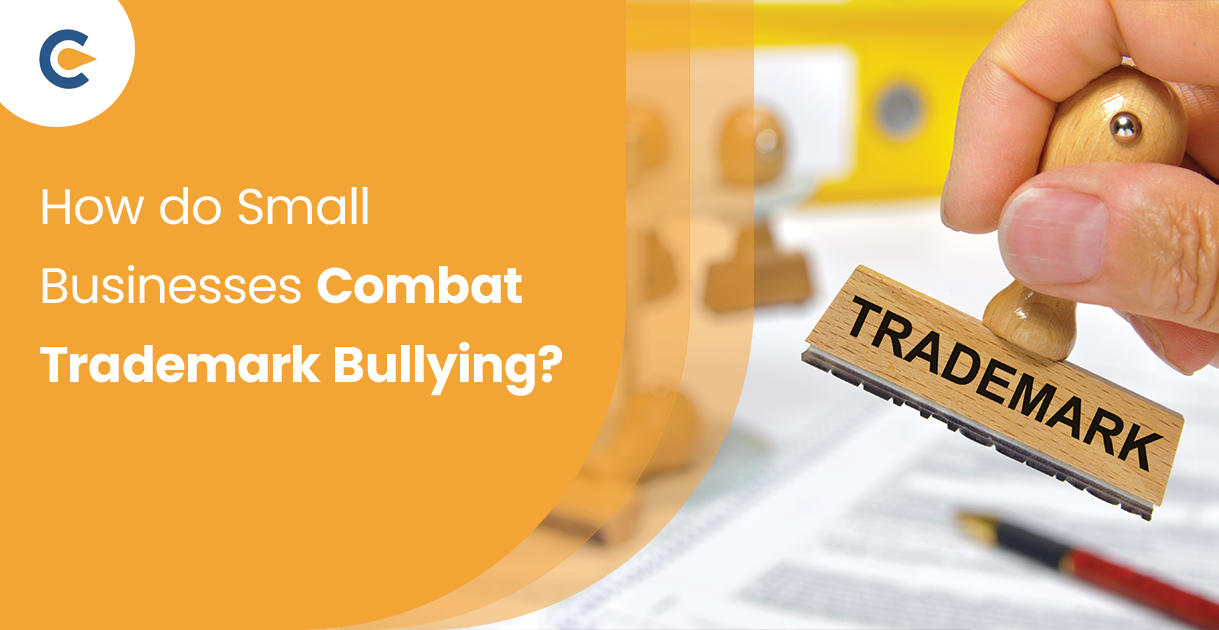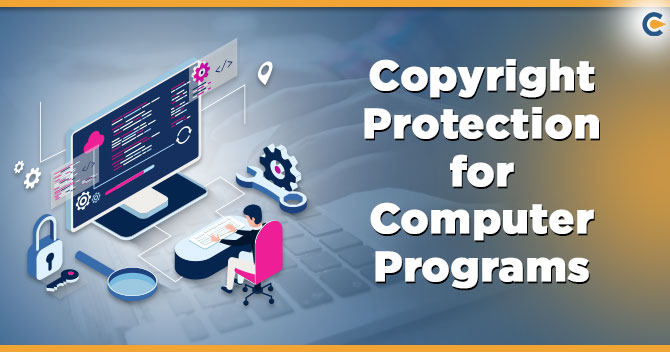Confronting a cease-and-desist letter or having a grievance filed against you is never a welcome occurrence. Various resources must be routed away from your business & toward fixing the dispute or rebranding. A modest investment in IP i.e., intellectual property diligence work prior to the launch of website, can help you avert the given Intellectual Property Errors.
Common Intellectual Property Errors that you Must Avoid


Infringing Trademark Rights of Others
The Issue: This is perhaps one of the most common Intellectual Property Errors committed by the people. You have opted for a brand name for your brand new site or product and spent money on preparing content & marketing materials around the brand. And all of a sudden, you came across a cease and desist letter showing that you are infringing on someone else’s trademark rights. You were left with two options in this tricky situation: either file a case against the sender or opt for a rebranding strategy.
Solution:-
- Before you are too invested in the branding, select some apt individuals and conduct in-depth diligence.
- Run initial searches on the government database to see if anyone is already using the identical name for related offerings. While executing such an action, the thing about what you anticipate your firm doing in the next couple of years and ensure one is dominating a similar space.
- If you don’t find anyone using a concerning mark, take advice from a trademark attorney who has the expertise to evaluate any potential risk. This may cost you few thousand bucks, but it is a healthier investment considering the damages that might be incurred from unintentional infringement.
Read our article:Analysis on Generic Pharmaceutical Drugs from an Intellectual Property Perspective
Selecting a Legally Unenforceable Name
The Issue: You have chosen & are using a brand name only to find that it cannot be protected, enforced, and/or registered. If you haven’t chosen an enforceable name and registered it as a trademark, you might find it hard to discourage another entity from using a similar mark or claiming damages.
Solution: After choosing the name, file to protect it as a trademark. A government registration renders benefits that include the right to seek damages and a presumption of ownership. It also acts as a shield for mark so that others can’t use it at their will. Ensure the registration application encompasses all of the products & services you expect to offer within the upcoming time. Apply in other nations where you anticipate operating.
Once you register the mark, enforce your rights to it. If you see other entities using an identical mark for a similar product, take advice from the trademark lawyer.
Failing to set up Coordination between Name Registrations and Trademark’s Adoption
The Issue: You have chosen and apply for a mark registration. But when you approach the domain name provider, you find out that the corresponding name is already taken. If the owner came to know that you are willing to set up an online business with a similar name, the owner would likely grab it in the first place regardless of its cost. Or, under another case, you pay huge money for a domain name only to find out that it is legally unenforceable or not available in India.
Solution: Set up coordination between the timing of your filing & disclosure of your proposed name with your purchase of domain names to make sure that both are accessible & affordable for the name you select in your home country and any other nations where you intend to operate.
Use of Copied Content
The Issue: In designing the site, you take content from a different site. This may trigger the copyright issue because you have chosen the content without the owner’s consent. In such cases, the owner may demand you to pay heavy penalties against the damages.
Solution:
- Make sure you have the owner’s permission before posting the content on your website.
- Avoid imitating or pasting content from others without written consent.
- Prefer posting unique content as it is the best way to keep such threats at bay.
Keep in mind that using the name or showing people’s faces to promote your website may infringe those person’s rights of publicity. Ensure that you have an agreement in place with a concerned content developer or provider. This includes having contractors or consultants appointed to create work assign the copyright to you.
Making Non-Legit Advertising Claims
The problem: In marketing your new offering, you make claims on your online portal about it based on non-legit & incomplete details. The claims might also establish a comparison between your product and others. The concerned competitors in such cases take this as an offense and lodge a complaint about false advertising.
Solution:
- Make sure that the claims you make are true to your knowledge and backed by legitimate evidence.
- Use a reputed third-party entity to conducts analyses and any scientific tests.
- Make sure you have supporting materials & documents in place.
Be watchful when making claims regarding rival products. While comparative advertising is not an offense in India[1], it must comply with prevailing trademark & advertising laws. And while such practices can be very effective, it is dangerous because it will be under the radar of competitors. Also, be cautious about your rival’s trademarks. For instance, do not use their registered logos or name in any sense that suggests a linkage with you that doesn’t exist.
Conclusion
The online marketplace is a solid business landscape for those who want to make good money with lower investment. But the competition in this domain is rising rapidly, and so are the incidents of unfair business practice. The incident of Intellectual Property Errors is very common in this domain. Every year several companies encounter costly lawsuits and end up paying hefty penalties to the plaintiff. Get in touch with some experts before it’s too late for you to turn the table.
Read our article:Different IP Rights in India: A Complete Checklist











